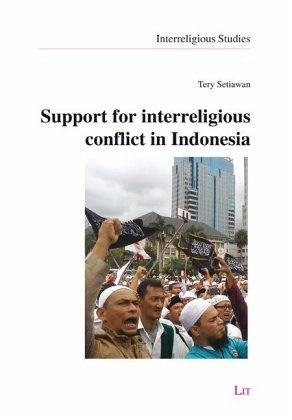Nicht lieferbar

Support for interreligious conflict in Indonesia
Versandkostenfrei!
Nicht lieferbar
The relatively peaceful interreligious relations in Indonesia seem to be shattered ever since Suharto's fall in 1998. Religious cleavages grew and quickly became sources of conflict. Exclusive religious truth claims have led people to support interreligious violence. Yet, benevolent religious values continue to encourage people for mutual solidarity and to shy away from violence. Religious minority groups are often perceived as a threat by the religious majority. Although living side by side allows different groups to develop positive interreligious contacts, this may differ for religious majo...
The relatively peaceful interreligious relations in Indonesia seem to be shattered ever since Suharto's fall in 1998. Religious cleavages grew and quickly became sources of conflict. Exclusive religious truth claims have led people to support interreligious violence. Yet, benevolent religious values continue to encourage people for mutual solidarity and to shy away from violence. Religious minority groups are often perceived as a threat by the religious majority. Although living side by side allows different groups to develop positive interreligious contacts, this may differ for religious majority and minorities. This study scrutinizes the role of religion in interreligious conflicts in Indonesia.



